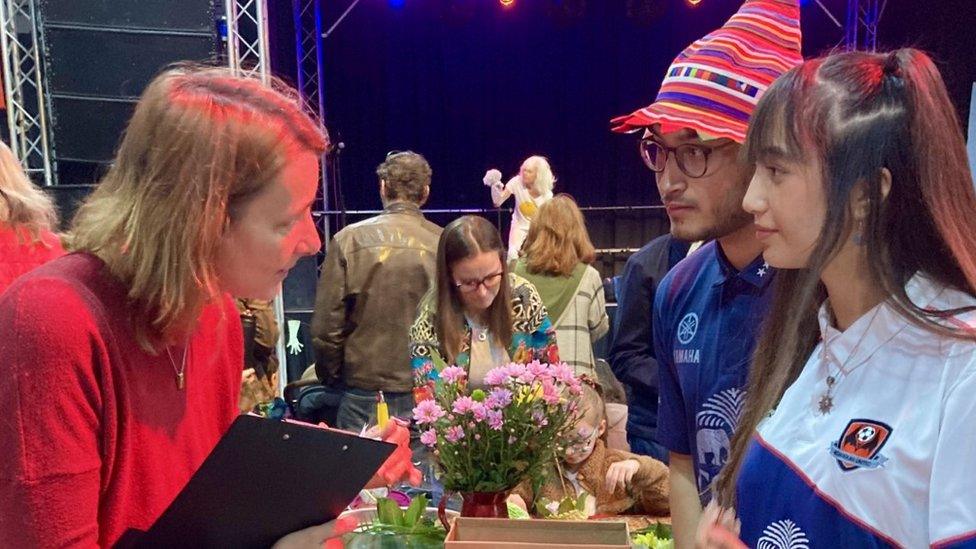Bristol project to improve skin tone diversity in medical photos
- Published
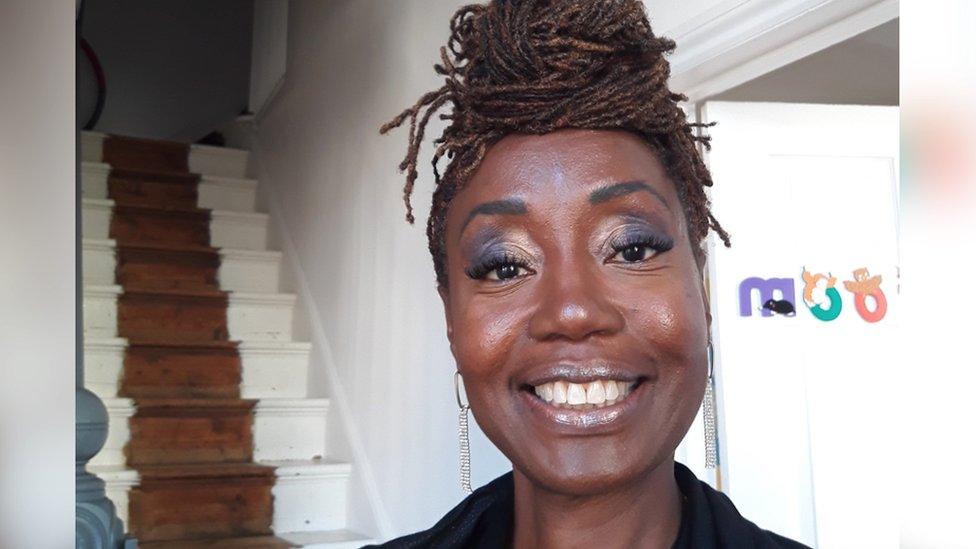
Ann-Marie Hines joined the project after seeing it advertised
A photography event is being held to help the NHS build up a diverse library of skin tones in medical literature.
Ann-Marie Hines is participating after her own anaemia was mis-diagnosed due to her skin colour.
The NHS-funded project is led by a team from UWE and taking place at the Malcom X Centre in Bristol.
Ms Hines said: "I hope lots of people of colour will not go un-diagnosed for longer than necessary."
When she had anaemia a few years ago, Ms Hines had to visit her doctor on several occasions before she was referred for a blood test.
"It struck a chord. Because of my skin tone, he didn't pick up on the fact that I may have been pale.
"He was annoyed with himself because he'd worked in Kenya and was aware that the condition looks different on people of colour.
"Certain journals and articles won't have the depiction of how it looks on dark skin," she added.
She hopes that the project will help to educate future doctors by teaching them about diversity at the start of their careers, so it eventually becomes "second nature".
'Break the stigma'
Debbie Hubbard, a senior lecturer from UWE is leading the project, called Reframe - Diversifying Images, external, which aims to "break down stigma" and improve people's sense of belonging.
"White skin is presented as the normal - there isn't a consideration for other skin tones," she said.
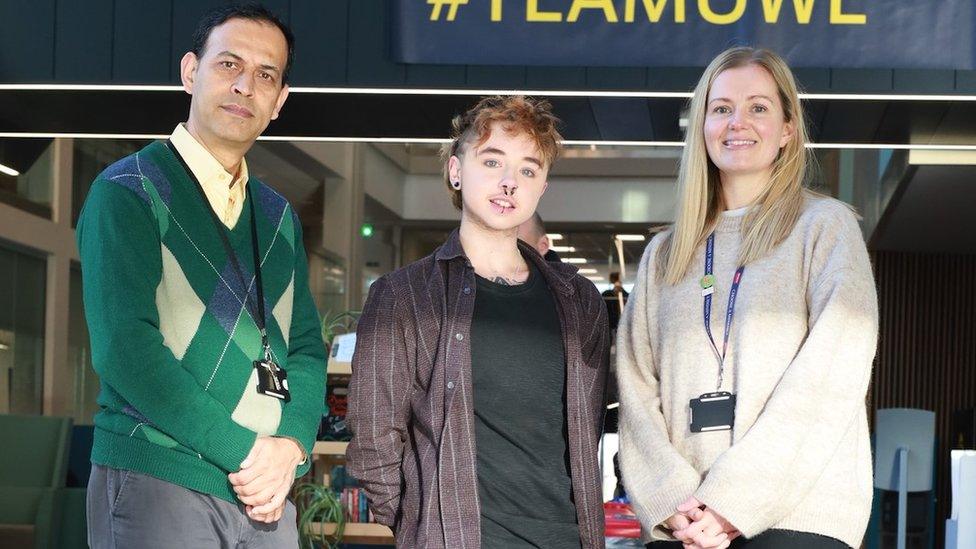
Puspa Pant, Brodie Goodall and Debbie Hubbard are all involved in the initiative
"If we have those images then it will help healthcare professionals and students who are learning about these conditions. It can be hugely impactful from just one photo," she added.
By hosting 30 sessions with photographers from University Hospitals Bristol and Weston Trust, the team are hoping to represent people living with all sorts of conditions, including eczema, impetigo and psoriasis, by creating an online library of images which will be hosted on the NHS website.
They hope that by displaying a range of skin tones through photographs, medical professionals will be able to identify skin conditions faster and more accurately for patients.

Follow BBC West on Facebook, external, X, external and Instagram, external. Send your story ideas to: bristol@bbc.co.uk , external
- Published20 January 2024
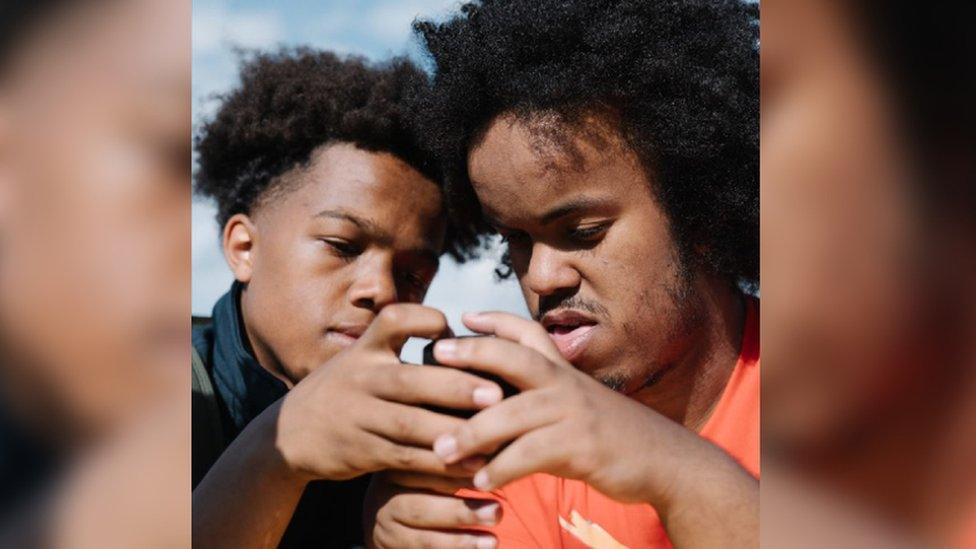
- Published19 September 2023
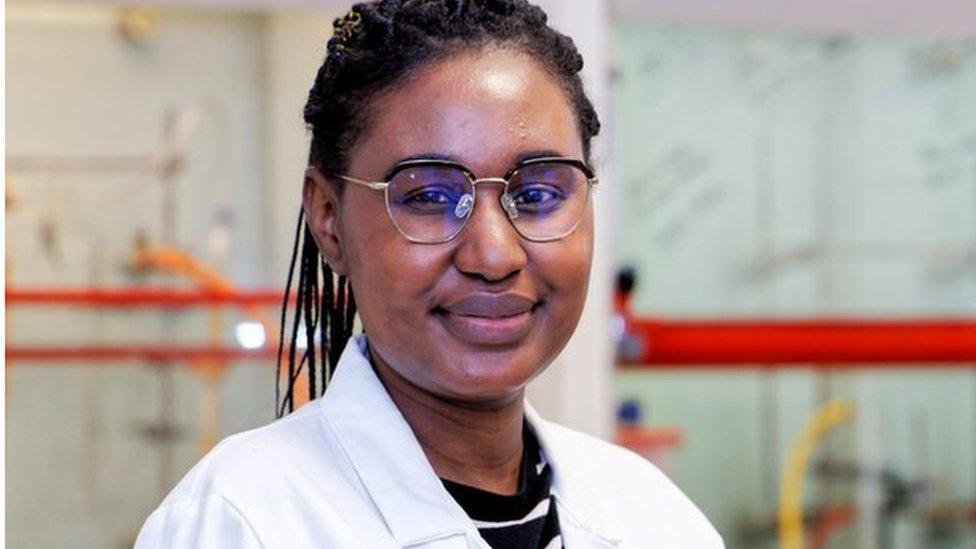
- Published11 October 2022
